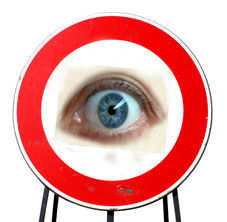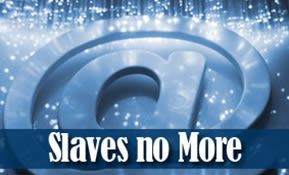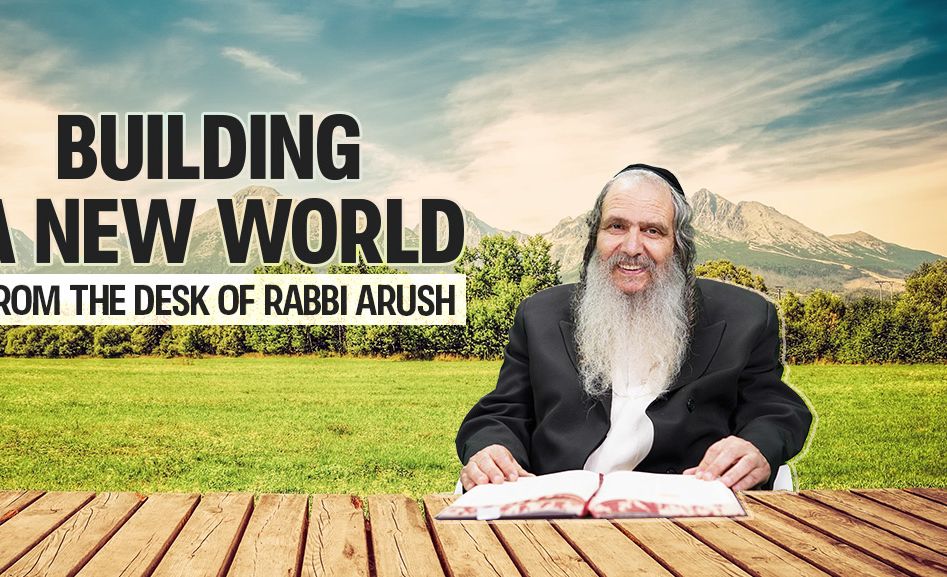
You Can too, my Brother!
When we first hear about guarding our eyes we think, "This is impossible! There's no way I can be this careful." Our sages succeeded, you can too, my brother…

Practical Guidelines to Shmirat Eynayim (Guarding the Eyes)
Many people seem to think that shmirat eynayim is some type of Breslever baal teshuva eccentricity. I meet numerous Orthodox Jews who simply ignore the fact that the Torah commands them to guard their eyes.
Breslever shtick? Not only is looking at women forbidden, but even thinking about them is expressly outlawed in Jewish law. Let’s see what the Shulchan Aruch (Code of Jewish Law) says on the subject:
The Four Primary Laws Pertaining to Looking and Thinking about Women
(Shulchan Aruch Even HaEzer, Chapter 21, Law 1)
(Shulchan Aruch Even HaEzer, Chapter 21, Law 1)
For the sake of clarity and implementation, we have summarized these rulings. By familiarizing ourselves with these laws, we will have a ready and practical guide to live by. (There are different laws regarding one’s own wife):
1. It is forbidden to look at a woman if she is dressed immodestly.
2A. If we know of an area where immodestly dressed women are present, it is forbidden to enter this area. An alternative route must be taken.
2B. However, if it is necessary to pass this route and there no alternative route, or the alternative route is impractical or costly, a person is permitted to pass through an area of immodestly dressed women, providing he makes every reasonable effort to avoid seeing the immodest sights.
3. It is forbidden to have thoughts of desire for any woman.
4. It is forbidden to derive pleasure from looking at the beauty of a woman, even if she is modestly dressed.
Clearly, these laws are not easy to apply in situations where women cannot be avoided, such as a work setting.
Wait a minute! Does the Torah think men are angels? How can any man realistically fulfill these laws?
It is very true that controlling the eyes is a tremendous challenge. However with sincere motivation you will ultimately prevail. Rav Shalom Arush shlit’a requires that a man devote 30 minutes a day of his hitbodedut to asking Hashem to help him guard his eyes. The Torah does not expect that we will instantaneously master our eyes. Changing ourselves requires study, loads of prayer, and the persistent practice of new behavior until it becomes second nature. By studying articles like these and applying its principles, we will eventually be able to fulfill the Torah’s laws regarding our eyes.
What to do daily: Decide to make a periodic review of these laws in order to strengthen their observance. Pray to Hashem to help you guard your eyes.
Applying the prohibition of “Not to go to places where there are immodestly dressed women.” Many men claim, “In today’s world, this law seems impossible to keep. There are immodestly dressed women almost everywhere”.
Is the above claim valid?
No. The wisdom of the Torah is eternal. The People of Israel have lived by the laws of the Torah for thousands of years. Wherever we have settled during our long exile – from Babylon to Burbank – we have observed the laws of the Torah. They emanate from Hashem’s Eternal Light and their practice is eternal and universal.
Yes, avoiding areas where women are immodestly dressed is a great challenge. However, the Halachah gives us a path to proceed. Firstly, if there is an alternative route, it is forbidden to take the path that leads past immodestly dressed women.
Yet, if there is no other reasonable alternative route, then you are permitted to walk in this area. However, you must observe the following guidelines:
Practical guidelines for one who is forced to be in an immodest area
 1. Lower your gaze or partially close your eyes when you pass immodestly dressed women. (Bava Batra 57b, see the Rashbam)
1. Lower your gaze or partially close your eyes when you pass immodestly dressed women. (Bava Batra 57b, see the Rashbam)2. Ensure that they will not be in your view for an extended period of time.
3. If a man knows that he cannot avoid looking at the immodestly dressed women, then he may not go into that area.
If you inadvertently see an immodestly dressed woman, you are not responsible as long as you didn’t intentionally look at her.
In an area of inappropriate sights, use strategies to keep your mind focused. For instance, as you enter the area, listen to a shiur on a portable device or call someone on your cell-phone. In addition, be prepared to turn your eyes away or close them as needed.
A person who looks downward or shuts his eyes when he walks through an immodest area is called “a saintly man,” in keeping with the verse (Isaiah 33:15-16) “One who shuts his eyes from a bad image will dwell in the heights.”
TODAY: If you must be in an area of immodestly dressed women keep your eyes lowered and distract yourself with something worthwhile.
Just as there are Torah laws that regulate our speech, there are Torah laws that regulate our sight. When we are first introduced to the laws of Shmirat Haloshon, we might feel overwhelmed. However, with study and practice, we learn how to guard ourselves from evil speech and we reap both spiritual and emotional benefits.
When we first learn the laws about regulating our eyes we also think, “This is impossible! There’s no way I can be this careful.” However, the more we understand the wisdom of these laws, the more fulfillment we will derive from their observance and the more motivated we will become.
(This article is based on material used with the generosity of our esteemed friends at www.guardureyes.com)







3/14/2010
Trying to figure out how to spend my time I’ve heard several things of Rabbi Shalom Arush on prayer. One from Forest fields that you should do 2 hours of prayer one hour telling hashem what I’ve done, an hour preferibly to ask hashem to help you in a certain middah. I also heard from one of Rabbi Brody’s January lectures to pray 30 minutes for the world. Now this saying to pray 30 minutes for hashem to help me protect my eyes. How should I work this out struggling to do what was said before. Thnk You
3/14/2010
I’ve heard several things of Rabbi Shalom Arush on prayer. One from Forest fields that you should do 2 hours of prayer one hour telling hashem what I’ve done, an hour preferibly to ask hashem to help you in a certain middah. I also heard from one of Rabbi Brody’s January lectures to pray 30 minutes for the world. Now this saying to pray 30 minutes for hashem to help me protect my eyes. How should I work this out struggling to do what was said before. Thnk You